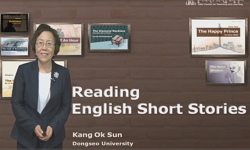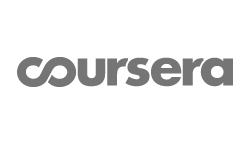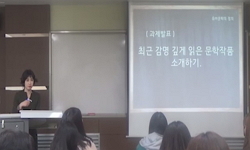개정된 문학 교육과정은 7차에 비해 틀이 체계를 갖춘 것 같다. 그러나 내용상 큰 변화는 없다. 여전히 ‘문학 지식’이 중심에 있는 것 같고, 무엇을 해야 할지 가늠하기가 어렵다.&...
http://chineseinput.net/에서 pinyin(병음)방식으로 중국어를 변환할 수 있습니다.
변환된 중국어를 복사하여 사용하시면 됩니다.
- 中文 을 입력하시려면 zhongwen을 입력하시고 space를누르시면됩니다.
- 北京 을 입력하시려면 beijing을 입력하시고 space를 누르시면 됩니다.
https://www.riss.kr/link?id=A76455180
- 저자
- 발행기관
- 학술지명
- 권호사항
-
발행연도
2007
-
작성언어
-
- 주제어
-
KDC
373
-
자료형태
학술저널
- 발행기관 URL
-
수록면
287-312(26쪽)
-
KCI 피인용횟수
1
- 제공처
-
0
상세조회 -
0
다운로드
부가정보
국문 초록 (Abstract)
개정된 문학 교육과정은 7차에 비해 틀이 체계를 갖춘 것 같다. 그러나 내용상 큰 변화는 없다. 여전히 ‘문학 지식’이 중심에 있는 것 같고, 무엇을 해야 할지 가늠하기가 어렵다.<BR> 국어과의 문학 영역을 심화시키는 것이 ‘문학’ 과목의 성격이라고 했으나 그 심화가 문학 지식을 의미하는 것으로 이해되고 있는 것 같다. 물론 문학 지식의 심화도 필요하겠지만 문학 지식 중심으로 교육 내용을 구성하는 것이 문제인 것이다. 구체적인 문학 활동을 통하여 그 문학 지식을 심화시킨다고 했으나 아무래도 초점이 문학 지식에 놓이게 되고 그렇게 된다면 문학 작품은 즐겁게 향유할 대상이 되기는 어려울 것이다.<BR> 한 편의 문학 작품을 수용하는 과정이 국어 과목 속에서 문학 작품을 읽을 때와 문학 과목 속에서 작품을 읽을 때 어떻게 다를까. 작품의 수준이 달라질 것이고, 작품을 읽은 뒤에 할 수 있는 표현 활동이 달라져야 할 것이다. 물론 수용하고 표현하는 과정에 작동하는 배경 지식의 넓이와 깊이도 달라져야 할 것이다. 그러나 문학 교육과정에서는 ‘작품을 선정할 때 학습자의 상황을 고려한다’ 와 같이 국어와 달라진 바가 없다.<BR> 생산 활동의 수준도 달라져야 할 것이다. 소설의 경우를 놓고 생각해 본다면 작품을 읽고 작품의 줄거리를 정리하는 낮은 수준에서 인물의 성격을 중심으로 이야기를 파악하는 좀 더 높은 수준으로, 그리고 공간이나 시간적 배경까지 파악하는 좀 더 높은 수준, 이런 요소들을 망라한 비평글 쓰기와 같은 높은 단계, 하나의 분명한 관점을 가지고 비평문을 쓰는 단계 등과 같은 수준의 변화가 있을 수 있을 것이다. 물론 줄거리가 있는 이야기 쓰기, 인물의 성격이 뚜렷하게 드러나는 이야기 쓰기, 주어진 상황의 분위기가 드러나게 이야기 쓰기, 인물의 성격을 창조하는 이야기 쓰기, 갈등이 드러나는 이야기 쓰기와 같이 갈래별 쓰기 활동도 수준에 따라 달라질 수 있을 것이다.<BR> 그런데 교육과정에서는 그런 수준보다는 단지 학습자의 관심이나 심리적 요구 등만을 제시했기 때문에 현실적인 적용에서는 별 의미를 갖지 못하게 된 것이다. 그리고 실제 내용도 구체적이지 않아서 교육과정을 알기 전과 알고 난 후에 문학 교육에 대한 생각이 달라질 아무런 요소가 없다.<BR> 심화 과정의 문학 과목을 이수했다면 알아야 할 문학 지식이 있을 수 있다. 그러나 그 문학 지식의 수준은 문학 작품을 수용하고 생산하는 이치와 같은 것이어서 글을 읽고 쓰는 활동에 자연스럽게 작동할 수 있어야 의미가 있는 것이다. 문학 지식이 아무리 풍부해도 다양한 작품으로 전이해서 적용할 수 없다면 그것은 별 가치가 없을 것이다. 암기된 문학 지식은 결코 그런 수준을 벗어날 수가 없다.<BR> 문학 교육과정은 아무래도 욕심을 줄이는 일이 가장 선행되어야 할 것이다. 문학 교육의 현실은 매우 초보적인 수준에 있어서 작품 꼼꼼하게 읽기부터 시작해야 할 형편인데 교육과정은 너무 많은 것들을 너무 추상적으로 요구하고 있다. 더구나 이 많은 것들이 작품을 제대로 수용하고 생산하는 활동을 돕기 위한 것이라면 환영해야 할 일이나 대체로 그 목표들은 그런 수준에 있지 않다. 오히려 작품을 수단으로 해서 뭔가를 하려고 하는 것이다. 바람직한 인간을 만들거나 공동체에 기여하는 인간을 만들고자 하는 목표가 더 강하게 드러나 있는 것이다. 이런 목적이 강하게 드러나면 작품 읽기는 소홀해지고 목표를 중심으로 한 수업을 하게 된다.<BR> 좀 더 구체적인 교육과정이 제시되어야 교육과정만으로도 수업의 설계가 가능할 것이다.
다국어 초록 (Multilingual Abstract)
The new curriculum for literature education seems to be more systematic than the 7th revision of the curriculum however there is not much change in its contents. The "Literary Knowledge" is still placed in the center and it is no...
The new curriculum for literature education seems to be more systematic than the 7th revision of the curriculum however there is not much change in its contents. The "Literary Knowledge" is still placed in the center and it is not clear what to do with it.<BR> It stated that the characteristic of "literature" subject is to intensify the literary province of Korean language course but it seems such an "intensification" is being understood as the literary knowledge. The intensification of literary knowledge is indeed necessary however it becomes problematic when the contents of the education is centered on literary knowledge. It stated that it would intensify the literary knowledge through substantial literary activities, but if that is the case, the focus has to be laid on the literary knowledge and the literary works can hardly become subjects to enjoy.<BR> How is the process of understanding a literary work different when reading it in the Korean language course and when reading it in the literature course? The level of the literary work will change and the activities of expression after reading the literary work must change. The depth and breadth of the background knowledge which influences the process of understanding and expressing the literary work will also change. However the curriculum for literature is not different from the Korean language course as it stated, "Consider circumstances of students when selecting literary work."<BR> The level of productive activities must also change. Take novels for instance, there can be a change from the low level where students read the literary work and summarize the synopsis of the work up to the high level where students understand the story centering on the personalities of characters and even the time and space backgrounds, or up to the level where students comment on a work regarding all those literary elements or write a review on a work with a distinct viewpoint. Various writing activities can also change according to the level of study such as the writing stories with a plot, stories where the personalities of characters stand out, stories that reflect the ambience of the given situation, stories that create the personalities of characters and stories that show the conflicts between characters.<BR> However, the curriculum only suggested the interest or psychological demand of students rather than reflecting the level of studies and failed to have significance in the application in the field. The contents of the curriculum also is not concrete that there is no element which would change the ideas about the literature education after examining the curriculum.<BR> There can be the literary knowledge that a student must have if the student completed the intense literature course. However, the level of literary knowledge is like the principle in understanding and producing literary works and it would be meaningful only when it is naturally incorporated into the activities of reading and writing. No matter how extensive literary knowledge one has, if she or he cannot transfer it into various works, then it would have not much value. The "memorized" literary knowledge will never overcome that level.<BR> Reducing ambition must precede all activities in the process of making the curriculum for literature course. The level of literature education in reality is in the very beginning stage where it should start from reading literary works carefully however the curriculum wants to achieve so many things so abstractively. More over, if those activities out of such an ambition in current curriculum are helping students understand literary works correctly and produce their own works however they are not in the level. They are rather trying to do something by using literary works as a tool. The goal of cultivating wholesome people or the people who contri
목차 (Table of Contents)
- <요약문>
1. 들어가며
2. 성격
3. 목표
4. 내용
5. 교수 학습 방법
6. 평가
7. 맺으며
<참고 문헌>
<Abstract>
- <요약문>
1. 들어가며
2. 성격
3. 목표
4. 내용
5. 교수 학습 방법
6. 평가
7. 맺으며
<참고 문헌>
<Abstract>
동일학술지(권/호) 다른 논문
-
8차 11-12학년 다중매체 선택 과목 교육과정의 비판적 검토
- 우리말교육현장학회
- 권혜령(Gwon Hye-ryung)
- 2007
-
- 우리말교육현장학회
- 이차숙(Lee Cha-sook)
- 2007
-
제7차 유치원 교육과정 언어생활, 마주이야기 교육으로 풀어보기
- 우리말교육현장학회
- 정은경(Jeong Eun-kyeong)
- 2007
-
- 우리말교육현장학회
- 조장희(Cho Jang-hee)
- 2007
분석정보
인용정보 인용지수 설명보기
학술지 이력
| 연월일 | 이력구분 | 이력상세 | 등재구분 |
|---|---|---|---|
| 2028 | 평가예정 | 재인증평가 신청대상 (재인증) | |
| 2022-01-01 | 평가 | 등재학술지 유지 (재인증) |  |
| 2019-01-01 | 평가 | 등재학술지 선정 (계속평가) |  |
| 2018-12-01 | 평가 | 등재후보로 하락 (계속평가) |  |
| 2015-01-01 | 평가 | 등재학술지 선정 (계속평가) |  |
| 2013-01-01 | 평가 | 등재후보학술지 유지 (기타) |  |
| 2012-01-01 | 평가 | 등재후보학술지 유지 (기타) |  |
| 2010-01-01 | 평가 | 등재후보학술지 선정 (신규평가) |  |
학술지 인용정보
| 기준연도 | WOS-KCI 통합IF(2년) | KCIF(2년) | KCIF(3년) |
|---|---|---|---|
| 2016 | 0.71 | 0.71 | 0.75 |
| KCIF(4년) | KCIF(5년) | 중심성지수(3년) | 즉시성지수 |
| 0.73 | 0.64 | 1.141 | 0.21 |




 스콜라
스콜라






